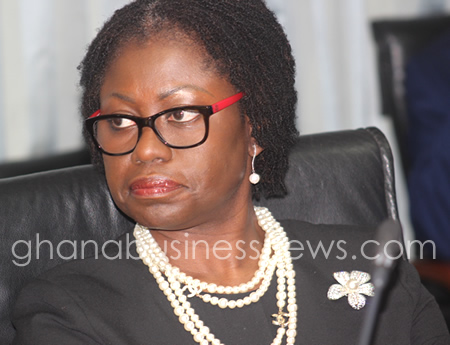Our directive on minimum paid-up capital still stands – Bank of Ghana

The Bank of Ghana (BoG) directive to all banks to comply with the minimum paid-up capital of GH¢400 million by December 2018 still stands, Mrs Elsie Addo Awadzi, 2nd Deputy Governor of the Bank of Ghana, said on Tuesday.
Speaking at a breakfast meeting for stakeholders from the banking community, academia and the media, Mrs Awadzi said the set up of a committee of stakeholders by the President Akufo-Addo to find a way of supporting the indigenous banks has nothing to do with the Central Bank’s directive.
“Our directive stands. We have had two years of engagement with stakeholders,” she said.
The meeting on the theme: “Building a Resilient Banking Sector to Support a Vibrant Ghanaian Economy,” is part of BoG’s efforts to engage with key stakeholders with the aim of reaching common ground on the state of the country’s banking sector and the way forward.
Mrs Awadzi said the BoG remained committed to restoring trust and confidence in the banking system, as well as promoting a strong and resilient banking sector to support robust macro-economic growth.
“It remains our view that this new capital floor will help make banks stronger and resilient, and position them to better support the Ghanaian economy,” Mrs Awadzi said, adding that the BoG would ensure a smooth transition to the new capital requirement by December 2018.
Mrs Awadzi said the BoG would also address specific risks from high Non Performance Loans, weak corporate governance, and poor risk management systems, as well as continue to roll-out the Basel II/III supervisory framework, and ensure implementation of IFRS 9 by banks.
The Bank would also issue and strictly enforce “fit and proper person” guidelines for bank shareholders, directors, and key management personnel, to promote high standards in the industry; Strengthen regulation and supervision of bank holding companies and affiliate companies to reduce intra-group exposures.
She said the Bank would continue to strengthen the Banking Supervision Department through capacity building and improved supervisory processes, in order to identify early warning signs of bank distress and to take prompt corrective action to address such risks.
Mr Alhassan Andani, Managing Director Stanbic Bank, said the banks were always consciously aware of the interest of their stakeholders, shareholders, customers, employees as well as the regulator.
He said talks of a banking crisis were premature as a large number of the banks, which controlled about 80 and 90 per cent of deposits and assets were sound and proper.
Mr Andani said the banks would continue to maintain a constant dialogue with the Central Bank, especially the banking supervision department so that if there were any slips they would promptly be corrected.
He said by and large the banks would continue to uphold most of the critical measures to ensure sound financial systems.
Source: GNA
